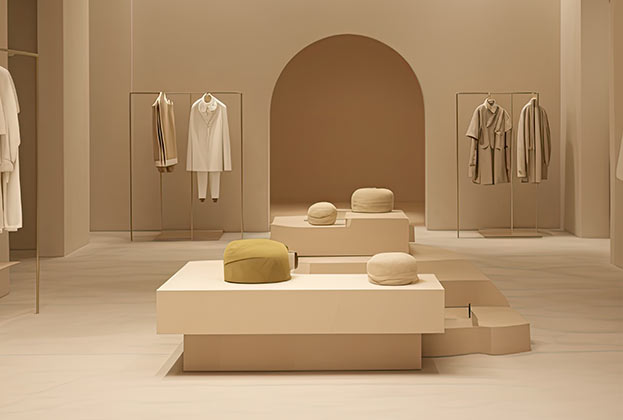José likes his beard sculpted once every two weeks. Pelayo tries on clothes in the shop but buys them later online. Javi and Vane go out on a date but do not talk to each other, instead they text during dinner and take pictures of their food. David waits all week for his beloved juernes. These are the quirks that define the Millennials, or as you may call them in Spain, the Spalenials.
Exactly what makes up a Millennial? Succinctly put, they are people born between the years 1983 and 2004, who are now 14 to 35 years old. They rely heavily on smart phones, Whatsapp, E-commerce, Spotify and Netflix. This is the generation that is not satisfied with last year´s model, and must have the latest in technological gadgets, trendy clothes and the like. In Spain, they comprise more than 11M people, 41% of which are currently working.
We can trace this phenomenon to the great technological leaps, as well as a multitude of other social factors, that have created a cultural divide between the Generation X and the Millennials. This gap is further widened by social media which has played an important role in the Spalenials´ consumption behaviour, whether it involves fashion, tech gizmos, dining or travel. Influential trend setters flood their social media accounts with their latest purchases endorsing them to the public in general, and to the Spalenials in particular. They post online blogs and video reviews of products and services on Youtube to reach an even wider audience, which, intentionally or unintentionally, heavily impacts consumers’ purchasing trends.
Although celebrities still influence them, most millennials all over the world thrive on a sense of uniqueness
What influences the Spalenials´ consumerism? What principles move them? Due to the impact of pervasive social media, global issues have always affected this particular generation. Environmentalism is one of them, which has given rise to so-called “green clothing,” involving the use of ecologically-grown cotton from fast fashion brands such as H&M, Primark, Benetton, etc. Although celebrities still influence them, most millennials all over the world thrive on a sense of uniqueness, an authentic identity, and an organic, uncontrived lifestyle. The things that a millennial puts together must seem organic to his or her personality—they try hard to avoid being perceived as a copycat or a trend follower.
Although they still see some brands as status symbols, they do not buy brand items for brands´ sake. Therefore, exit Louis Vuitton, Bulgari, and Burberry in the minds of Spalenials, if these brands do not offer a unique design that is lauded by fellow Spalenials as “cool.” More often than not, we see male Spalenials wearing El Ganso, Scalpers, Mango Man, Pepe Jeans, G Star Raw, and Silbon, while their female counterparts don Zara, Mango, Stradivarius, Brandy Melville, and Salsa Jeans. Of course, for fast fashion, Primark, Springfield and Lefties top the list, simply for their quick changing offerings that match the Spalenials´ short attention span.
What differentiates Millennials from Baby Boomers and Generation Xers is their tendency to be less predictable and their deep-seated suspicion for venerable institutions, especially those lauded by the previous generations. It is difficult to gain their loyalty. This implies that retailers need to come up with constant innovations in their product and service lines to court this unique clientele. Thus, diversity is the key to customer loyalty. Millennials also place a huge importance on the value of their money. Therefore, products and services should not only be innovative, but also cost-efficient according to their specific needs to appeal to them. Lastly, peer opinion is of the highest priority; hence, professional influencers have thrived all over the world, and Spain is no exception.
Some new words that enter the Spalenials´ vocabulary include juernes (derived from jueves and viernes), flow (good vibes), start-up (a new business venture), spoiler (a way of diminishing the suspense of a movie by revealing the plot), postureo (a manner of pretending to be someone cool by projecting a good image), trol (an annoying person who sends unnecessary negative messages on social media) and salseo (refers to gossips and controversies).
The Spalenials are a growing market you cannot ignore. If you want your sales to increase, then you need to sell very well to the new generation. You should always study their dynamics
Spalenials are fickle-minded. One day you are the brand darling. The following day, you are uncool. Tuenti used to be at the peak, and now it has vanished from the face of the Earth, for reasons unknown. Polo Ralph Lauren and BCBG Max Azria used to be bywords for Spanish fashion but now they are somewhat struggling since they are identified with the previous generation. So beware. However, the Spalenials are a growing market you cannot ignore. If you want your sales to increase, then you need to sell very well to the new generation. You should always study their dynamics: identify their habits, their individual lifestyle, their likes and concerns.
Analyze the factors leading to their purchase decisions. Spalenialize your brand and foster a dynamic relationship with the Spalenials.




.jpg)




.jpg)
